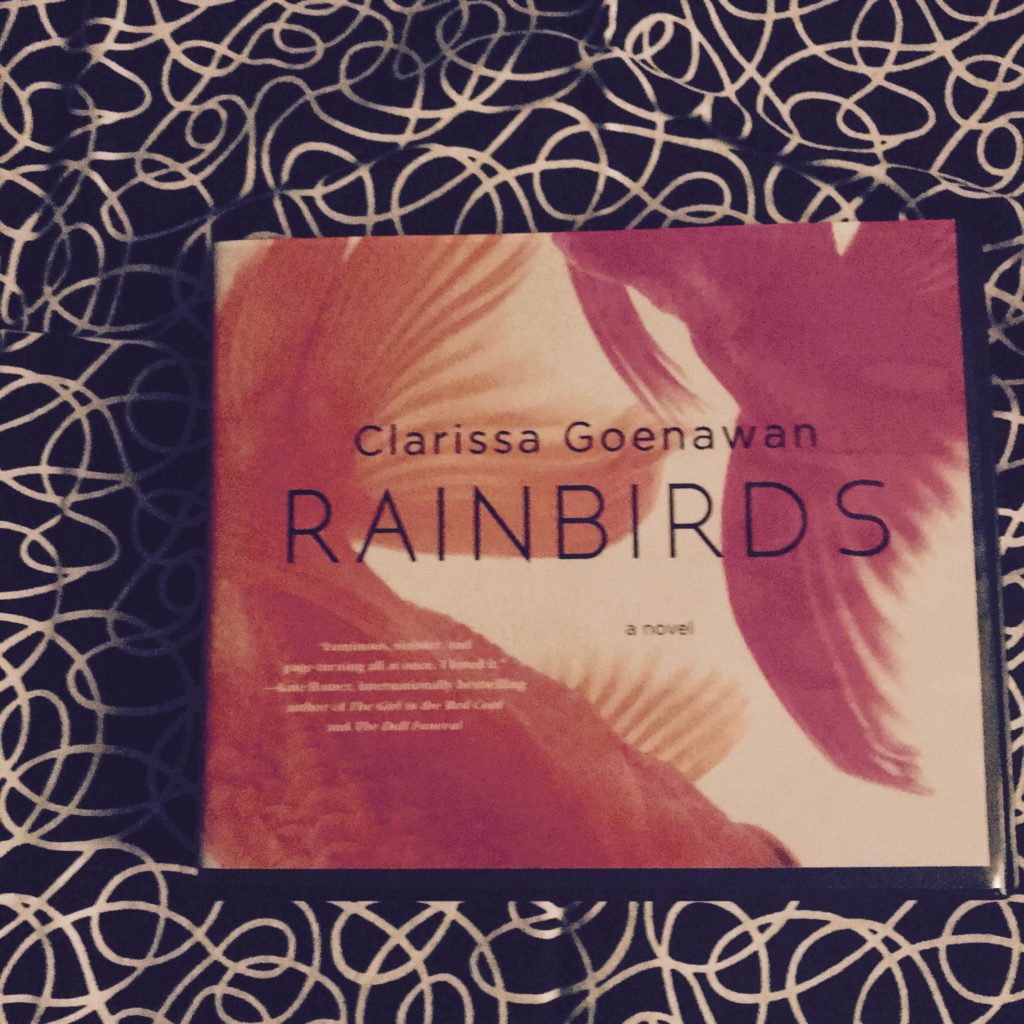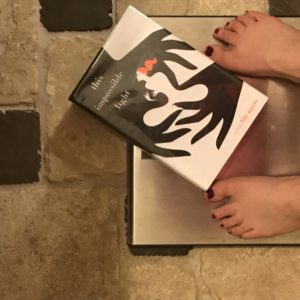I received a free version of Rainbirds on CD from Penguin Random House via LibraryThing. I’m grateful to Penguin Random House and LibraryThing for their generosity in providing a copy for me to review. All opinions are my own.

“Remember this, Ren. Sadness alone can’t harm anyone. It’s what you do when you’re sad that can hurts you and those around you.”
Synopsis
Rainbirds follows Ren Ishida on his journey to the fictional, remote town of Akakawa in the wake of his sister’s murder. What should be a short trip to wrap up her affairs becomes an escape for Ren—an escape from the expectations and failures of his own relationships in Tokyo and into the life of the sister who hid so much from him over the last decade. Ren stays in Akakawa, taking Keiko’s job and moving into her rooms in a local house. The farther he steps into Keiko’s life, the darker things become, until it isn’t clear that Ren himself will survive the trip unscathed.
Genre
This is a book that perhaps was mis-billed for me. That is to say, I expected a thriller going into the book—the beginning chapters set in motion the story of a grieving brother, come to the small town where his sister lived and was recently murdered. Ren is on a quest to find his sister’s killer, though he quickly comes to realize he didn’t know her nearly as well as he thought. While this plot provides the scaffolding for the book, at its heart, Rainbirds is less a noir mystery and more a character study into grieving Ren. That said, the noir feel remains—this may not be a noir thriller but it starts dark and stays dark. Throughout the book, I had the feeling of impending storm clouds—an expectation, a crackling of electricity in the air, the surrounding foggy darkness. If you like dark, slightly creepy literary character studies, don’t let the early chapters turn you off. This book may be right up your alley.
Audio
I have mixed feelings about the audio of this book. On the one hand, I usually enjoy audio of any books set in different countries or with non-American characters. The audio usually adds to the experience, setting forth the cadence of the speech, the different emphasis and pronunciation of what are otherwise familiar English words. And the names and places are almost never ones I could get right without audio—case in point here, the book takes place in the fiction “Akakawa.” If I had to read that, I’d probably have emphasized (very incorrectly) the middle “kak” where the audio narrator pronounced it “Ah-kah-kah-wah” – no kaks involved.
But I digress. Rainbirds seemed like the kind of book I usually love on audio. My issue here, however, was that this book was gloomy in the extreme. I do most of my audiobook listening while driving so the combination of the gloomy mood, melodic male narrator, and almost no action meant that there were times when I had to stop listening. This was, for example, not the book I could listen to while driving three hours home at 1am after a concert and stay awake and alive.
This is not to say that I don’t recommend the audio of this book. The voice of the narrator was well-chosen and it was produced well—I just personally need a little more action in my audiobooks.
Lolita
One of the characters Ren becomes entangled with is a student at his cram school—Rio Nakajima, whom Ren nicknames Seven Stars after the brand of cigarette she smokes (much as Humbert Humbert renames Delores, “Lolita”). Though Rio is not prepubescent, she is seventeen and Ren (though in his early 20s himself) is her teacher. When the two inevitably become sexually involved—I say inevitable because by the time it finally happens it has been so long set up that it’s impossible to miss where this going—it reeks of Lolita. Seventeen is a good distance from twelve and she does attain the age of consent in the book; however, in the process of discovering what happened to Keiko, Ren also uncovers family events that have led Rio to be as damaged as she is. This is not a well-adjusted seventeen year old who happens to be wise above her years. This is a damaged, childlike, aged-too-fast seventeen year old who has no business becoming romantically entangled with her teacher. This entire relationship still bothers me, even though I finished the book over a week ago.
With that said, Goenawan is a talented writer—though Ren tries to avoid scenarios where he would be alone with Rio, the course of events forces the intimate meeting. The set up allows you to sympathize when Ren, even where the idea of a teacher engaging in a sexual relationship with a student is something that you normally think of as a hard line “no.” Though Rainbirds wasn’t ultimately a book I loved, the ability of Goenawan to make me empathize with someone I found morally problematic—during the very scenes I found problematic—makes me want to read her future works.
Connections
The characters were more interconnected than I expected, with the players forming a web—much like small town America, everyone knows everyone and one person is always related to another. These connections also created a bit of a subplot where Ren uncovers and solves another little mini-mystery as he digs for more information about his sister. These chapters could have felt like a tangent; however, learning more about the people in his sister’s life opened doors to him to learn more about Keiko. The diversions were short but worthwhile.
These connections and diversions also provided some unexpected little bursts in the book of “I didn’t see that coming.” The problem for me and why I’ve been sitting with this book is that, for all the little bursts I didn’t see coming, the one I would have wanted—the identity of the murderer and some kind of conclusion—never popped. Instead, the conclusion fizzled, like a balloon slowly leaking air.
Ending (Very, Very Mild Spoilers—No Killer Identified)
Having had more time to think about it, I found the ending ultimately unsatisfactory—Ren does achieve a sense of closure in that he (and therefore the reader) determines whodunit, but by this point, the story had petered out so much, that it felt lackluster. Does Ren even care that he got his answer? I honestly couldn’t tell. He’s discovered something of himself—something perhaps he didn’t want to know. Where the previous connections and reveals crackled, the final reveal felt as if it didn’t matter. If Ren didn’t care that he had his answer, should we?
And here I come back to the thought that perhaps this book was mischaracterized. When I set aside my disappointment over the finish, over the sense that the mystery was no mystery at all, I’m left with a character study. A slow-burn, creepily noir character study into Ren, yes, but more his sister. In searching for his sister’s killer, the person Ren really finds is her, but far too late to do anything about it.
Notes
Published: March 6, 2018 by Penguin Random House
Author: Clarissa Goenawan
Date read: May 2, 2018
Rating: 3 ½ stars


 Synopsis
Synopsis